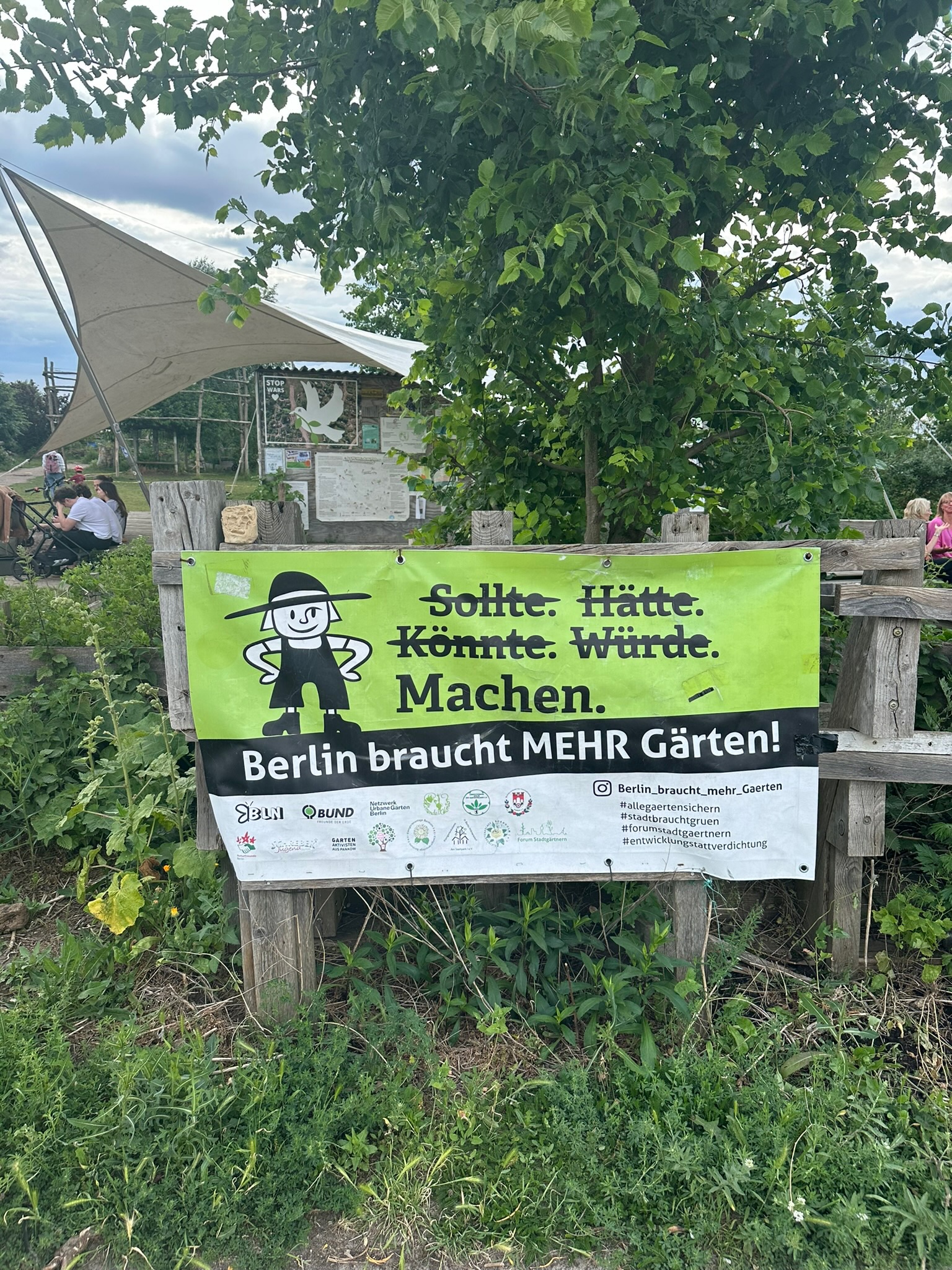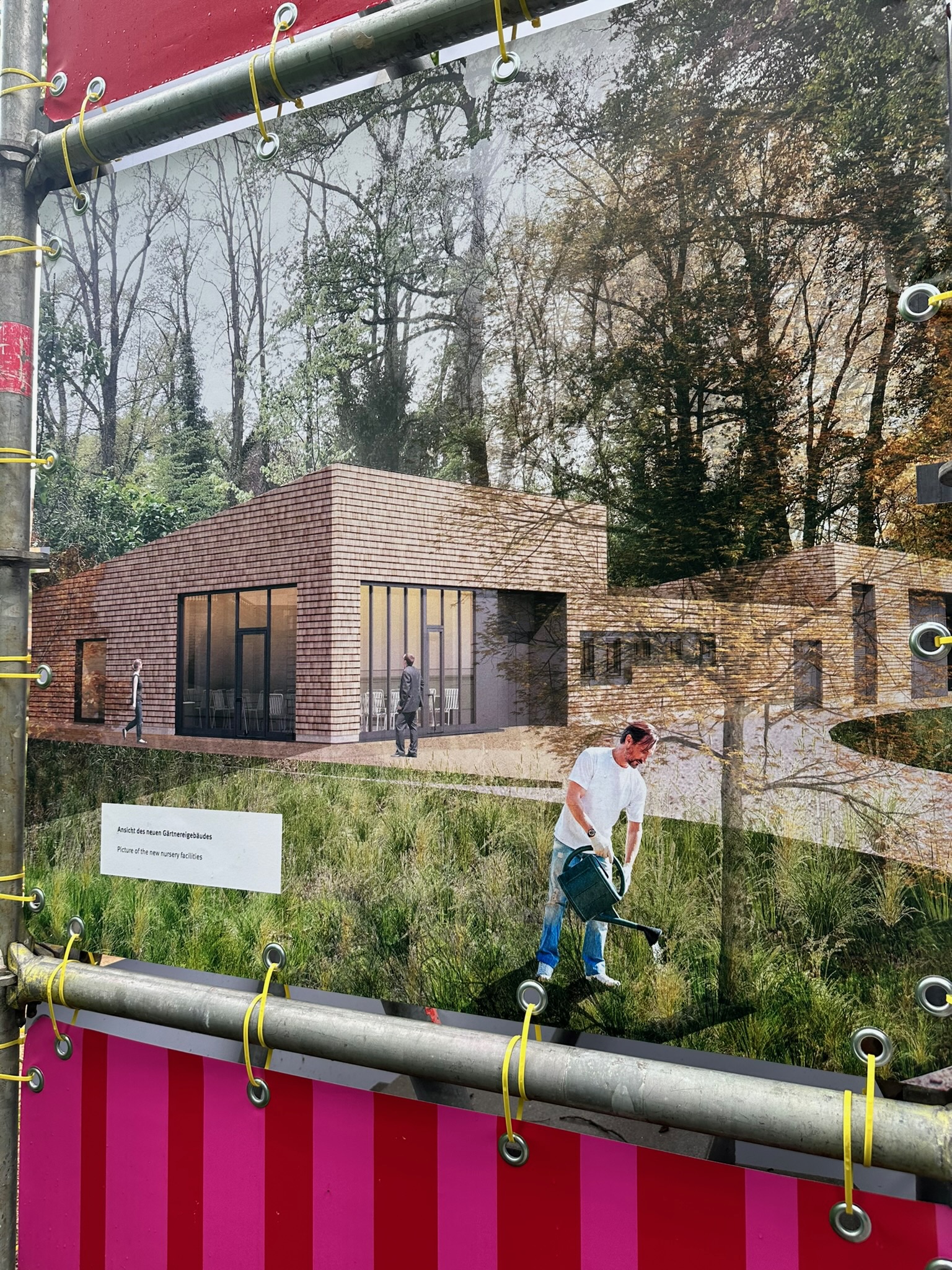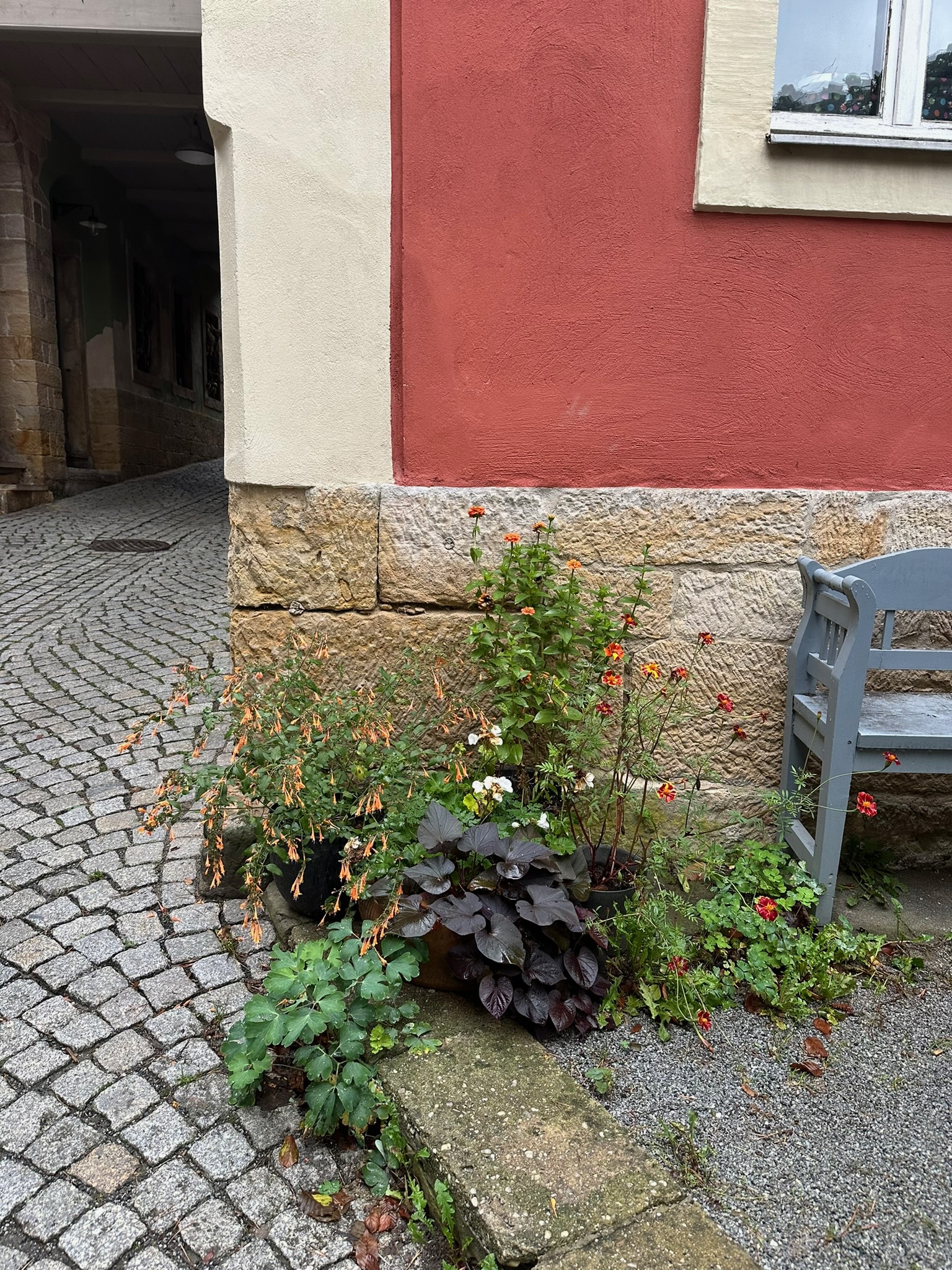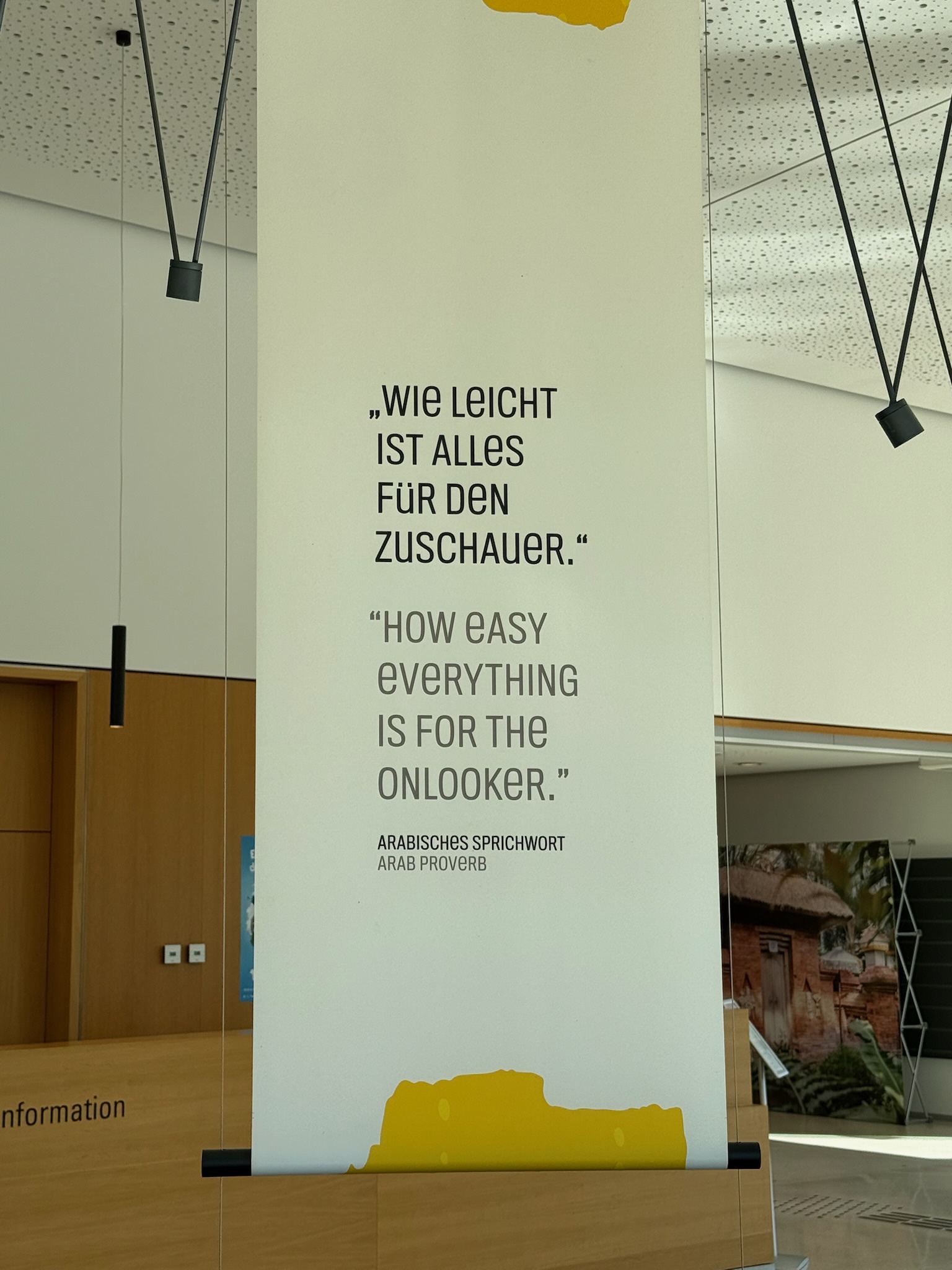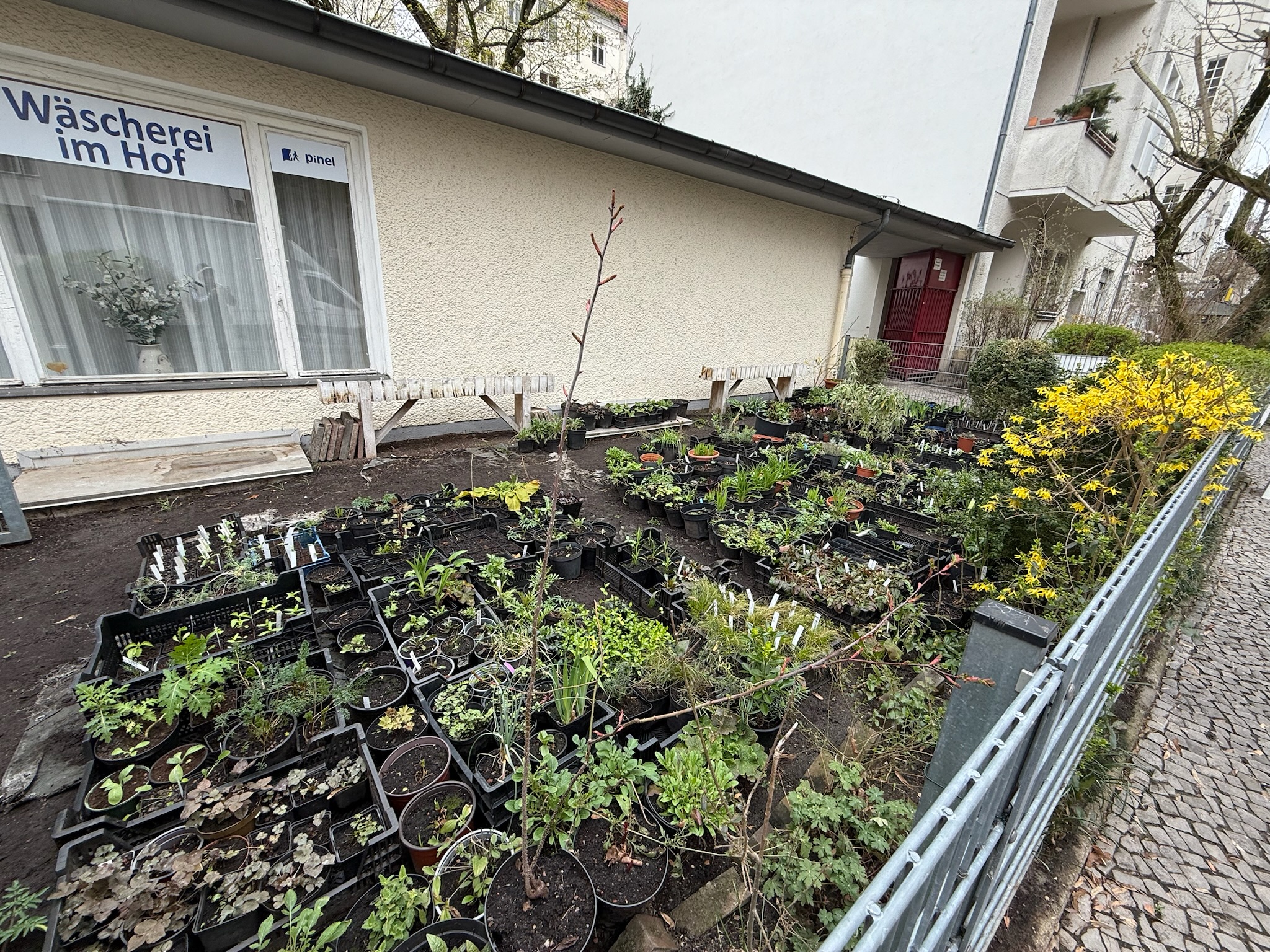GARDENING IN THE GERMAN SPEAKING WORLD
By Max Kanter
Test Plot board member and owner of Saturate
DATE: May 1st 2025
Aside from having my hands in the soil or on a pair of hand pruners, there’s nothing more satisfying than talking shop and exchanging with other gardeners. I take even more joy if they’re gardeners from another part of the world. I’m fascinated by the role of the gardener in every society. So fascinated that I’ve
invested in 6 trips overseas since 2022 to explore what it’s like gardening in other parts of the world. There’s one area of the world I’m particularly fond of and that's the German speaking part of Europe. This may sound romanticized but I believe Germany, Switzerland and Austria resemble a sort of gardener/ horticultures’ paradise. Here are my joyful field notes of observations so far from my journeys.
In the German speaking world (I’m sure other places too) gardeners play a foundational role in society. In order to understand this I’ve had to learn German so I can speak to locals and go deep into what it means to be a gardener there. In my experience so far it appears nearly everyone has an interest in gardening and plants, it’s engrained in their culture. They did invent the garden gnome after all! This deep appreciation for all things green is evident everywhere in the landscape.
Perhaps the popularity of gardening in the German speaking world relates to the core value of trade-work or “Handwerk” in the foundations of the German, Austrian and Swiss societies and economies. Gardening is considered a trade and treated as a trained profession. To become a gardener one must finish 2 years of schooling and 2 years of an apprenticeship with a test at the end just to become employed as a gardener. A true commitment to the trade. As for gardening and landscape businesses, they tend not to be as segmented into design vs maintenance/care camps, but rather gardening businesses are more often expected to provide full garden services with the ongoing client//garden
er relationship at the core of the value proposition. Taking it further, many “firms” here have their own nurseries, seed banks, maintenance crews and garden designers/builders.
As for design ethos, there tends to be a resistance to designing with too much control and an embrace and fascination for the “wild”. Wildness is more effortlessly displayed in the landscape here, with purity, control and uniformity not as common and resource intensive gardening efforts are almost illogical to the German gardener. Perhaps it’s the age of the societies and the generations of land practitioners passing on knowledge, but the goal of a perfect version of nature or 100% native plant garden isn’t really the goal there. The goal is more that the process of gardening produces a beneficial garden, with practical uses, enhanced biodiversity and less labor needed to sustain. As a gardener I find relief from the dogmatic thinking I encounter in the US (not everyone in the US but it’s more prevalent). It makes me feel less burnout and more longevity in what I do and allows for more enjoyment in the craft.
The German gardening cultural framework results in a different looking landscape too. The landscape appears to be a more woven patchwork of gardener infiltrations, a citizen stewardship approach vs an expectation that the land is highly segmented and compartmentalized and cared for by “others” and not by “us”. Locals there more often sweep their own sidewalks, tidy public plots under street trees, plant flowers on neglected strips of land überall (everywhere), with these small plots left untouched and respected. The quiet acts of stewardship and sense of shared space is a mindset there. Of course in LA the citizens are doing this as well, but quite literally every street in Berlin has examples of citizens taking the urban landscape into their own hands. The scale is just much more impressive and common.
Because of the “handwerk” culture, big difference is that the role of gardener in society is elevated and treated with respect along the lines of a doctor, lawyer or accountant.
In Germany, the role of the gardener is treated with a level of respect and professionalism that’s rare in the U.S. It’s considered a skilled, essential trade—often requiring a formal Ausbildung, or apprenticeship, that combines hands-on training with classroom education over several years. Gardeners are not just laborers; they’re specialists in plant knowledge, soil health, ecology, and design. Many belong to professional Vereine (associations), where gardeners exchange knowledge, set industry standards, and even lobby the government together for resources. This infrastructure reinforces the idea that caring for land, shaping green space, and supporting biodiversity are careers worthy of investment, education, and pride. Gardening isn’t a fallback job, rather a respected profession with roots in both tradition and innovation.
It makes sense that the German speaking world always tops the world rankings in urban green space access, local food production, biodiversity initiatives and an über robust gardening industry. This was super clear after attending the Perennial and Native Plant Festival at the Botanical Gardens in West Berlin, an extravaganza with 30,000 attentees and over 190 individual small scale, local plant sellers, s
eed specialists and of course several beer gardens. I was blown away that there are so many small scale plant growers which reflects a value in small and medium scale operations, vs. large scale production. Again, I’m so impressed at the scale and variety. During my next trip I plan to visit the “IPM-Essen”, the largest horticulture conference in Germany that brings together 40,000 people with thousands of vendors and booths from across the country. Who’s coming with me?!
I plan to go back to Germany very soon to continue my pursuit in understanding the German gardener mind. Next time it’s my hope to even do some gardening. These opportunities for exchange enrich and inspire me as a gardener, and while these trips are a privilege I highly encourage all gardeners to participate in an exchange of their own to gain universal perspective and awareness of the vast diversity of gardeners and garden culture that exists on our beautiful planet. More fieldnotes to come, but for now dankeschön (thank you) for your ear. Happy Gardening!
